As a fishing community, protecting the sea’s biodiversity isn’t just a duty – it’s a way of life.
In a groundbreaking stride toward coastal conservation, the Ban Phang Sai Community in Songkhla, Thailand, is demonstrating its leadership in scaling community-led environmental stewardship.
Traditionally a fishing community, Ban Phang Sai not only pioneered a waste management system to conserve coastal biodiversity locally but also successfully persuaded four stakeholders to commit to working together. The four groups — Thai Seawatch Association (TSWA), Sathing Phra Fisheries District Office, Kradangnga Subdistrict Administrative Organization, and Kradangnga Subdistrict Health Promotion Hospital — signed a Memorandum of Understanding (MoU) in September 2024.
The MoU aims to foster comprehensive waste management from source to disposal, starting with connecting community waste banks to Material Recovery Facilities (MRFs). By establishing model communities with effective waste practices who could lead by example, the partners aim to offer lessons learned and inspiration to other coastal communities.
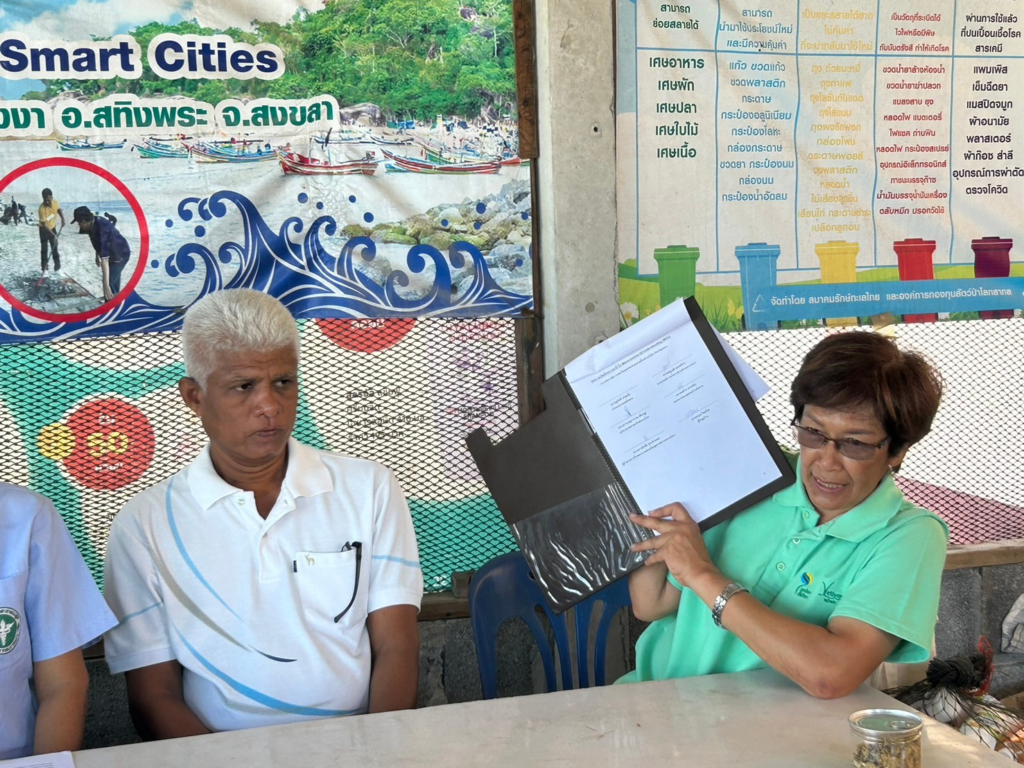
“As a fishing community, we hold the responsibility of protecting the biodiversity of the sea through proper waste management within our households and across our community,” shared Miss Benjawan Pengnu, a local stakeholder and the representative of the Thai Sea Watch Association, a local civil society organization implementing pilot solutions.
By enhancing community knowledge and awareness, promoting environmental health and well-being, and protecting seafood resources, Ban Phang Sai and its partners aim to restore and protect the area’s biodiversity, ensuring that the rich marine ecosystem remains a source of livelihood and pride for generations to come.
Addressing the global waste crisis—particularly marine debris—is highlighted as essential for achieving this goal; a key point being collaborative waste reduction initiatives.
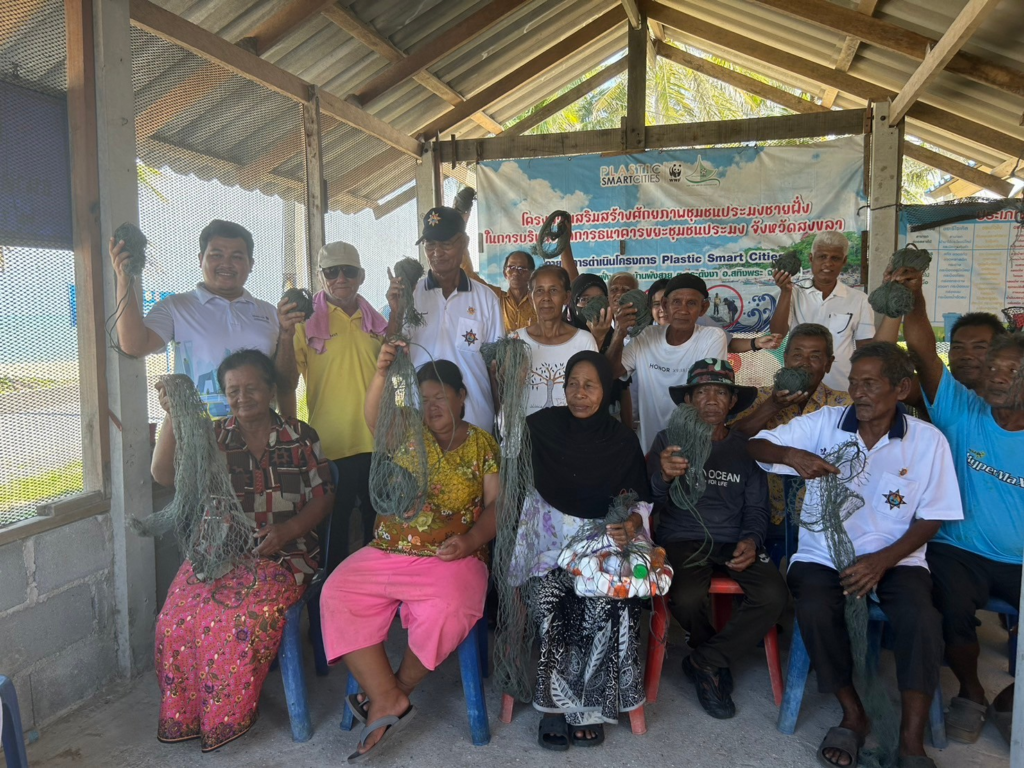
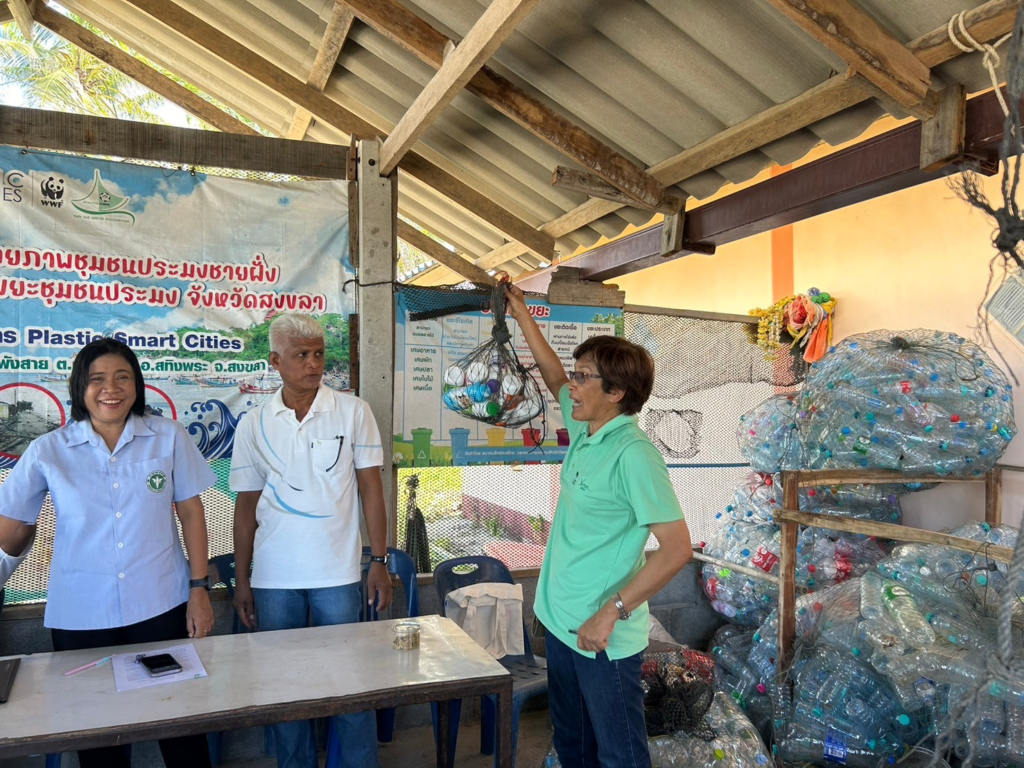
Working with Plastic Smart Cities: Ban Phang Sai Community’s Commitment to Restoring Biodiversity through Better Waste Management
Deeply aware of the impact of marine biodiversity on their livelihoods, the community has faced firsthand the damaging effects of plastic and marinewaste and has committed to restoring biodiversity.
Today, Ban Phang Sai Community stands out as one of Thailand’s success stories in the Plastic Smart Cities (PSC) initiative. But this was not always the case.
Located near the sea, Ban Phang Sai faced severe waste management issues. Plastic waste generated from fishing and household activities have been accumulating, but there was no lasting solution to manage the waste. The community lacked awareness and resources to tackle this problem, and previous interventions were short lived and unsustained.
PSC collaborated with TWSA and the Ban Phang Sai community by connecting waste management issues to daily life, making the problem more relatable and urgent. With support from the local Health Promotion Hospital (HPH), they highlighted the link between plastic pollution and health, where previous outbreaks of diarrhea and dengue fever were related to poorly managed waste leaking into the environment, or clogging up waterways and creating stale water that allows dengue mosquitoes to fester. Improved waste practices have since led to a significant decline in these health issues, reinforcing the value of proper waste management.
Additionally, PSC Team also demonstrated how sustainable waste practices can benefit the local fishing industry. These tangible benefits motivated the community to take action.
Financial Sustainability Catalyse Ban Phang Sai Waste Bank’s Success
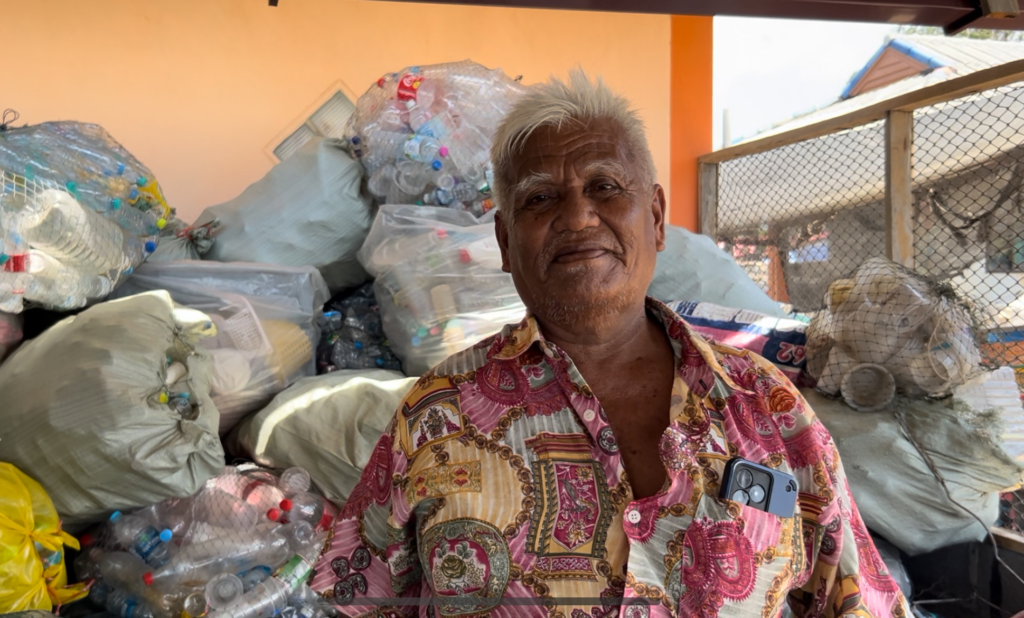
The transformation of Ban Phang Sai into a model community is rooted in its citizen science approach, transparent management, and the participation of its residents. Central to this success is the Ban Phang Sai Waste Bank, which has become a symbol of sustainable waste management in the region. Guided by detailed data analysis and transparent financial practices, the waste bank has not only benefited the community but has also achieved profitability to ensure its long-term operations.
Mr. Mad Makkhacho, the community leader, highlights the critical role of financial sustainability in the waste bank’s success. By implementing accounting practices and setting fair prices for waste materials, the initiative has maintained its profitability. The team collects and analyzes data on waste volumes, types, and market prices, enabling them to optimize operations and align with market demand. This system ensures that the waste bank can continually reinvest in its operations and support the broader community.
By connecting the waste bank with Material Recovery Facilities (MRFs) and other key stakeholders, this helped to foster a sustainable system of waste collection and recycling, while supporting waste bank management and providing regular capacity-building sessions has helped to enhance the community’s capacity.
Equipping the Ban Phang Sai Community with Skills, Knowledge and Networks
PSC and TSWA’s efforts focused on encouraging the community to take ownership of its waste management journey. Training programms on monitoring and evaluation equipped residents with the skills to track their progress, such as reductions in household waste and the efficiency of the waste bank.
PSC and TWSA also facilitated knowledge exchanges between Ban Phang Sai and other successful communities, inspiring residents with real-world examples of sustainable change. MoUs signed with government bodies and organizations strengthened these partnerships, ensuring that the community could maintain momentum and independence.
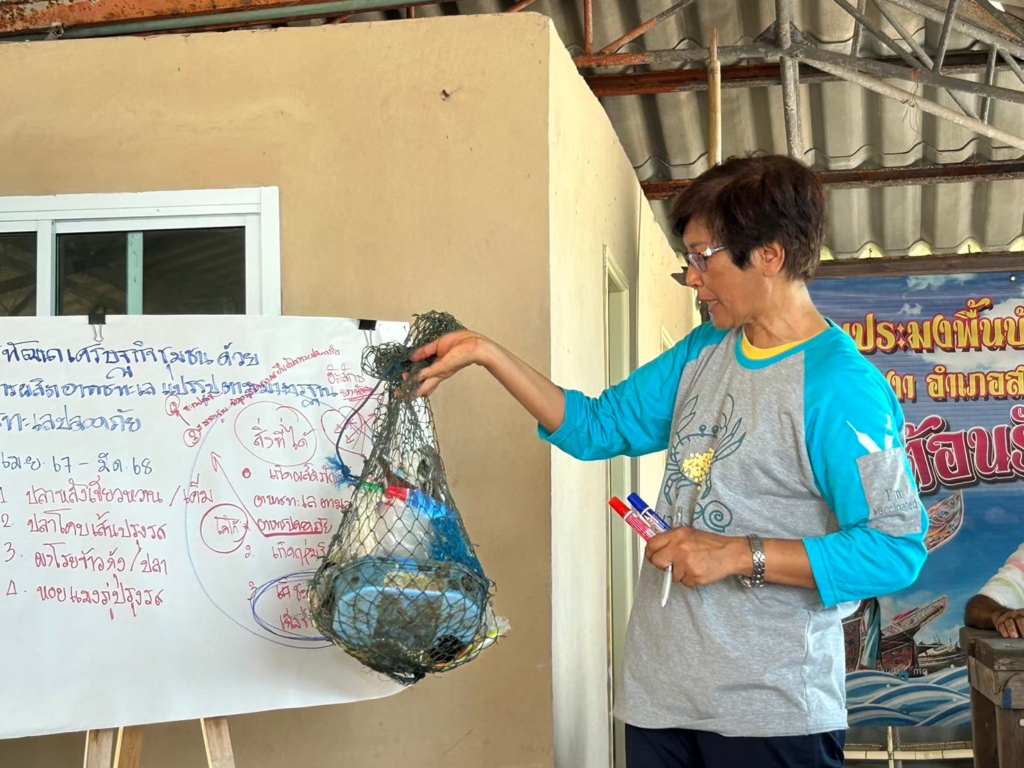
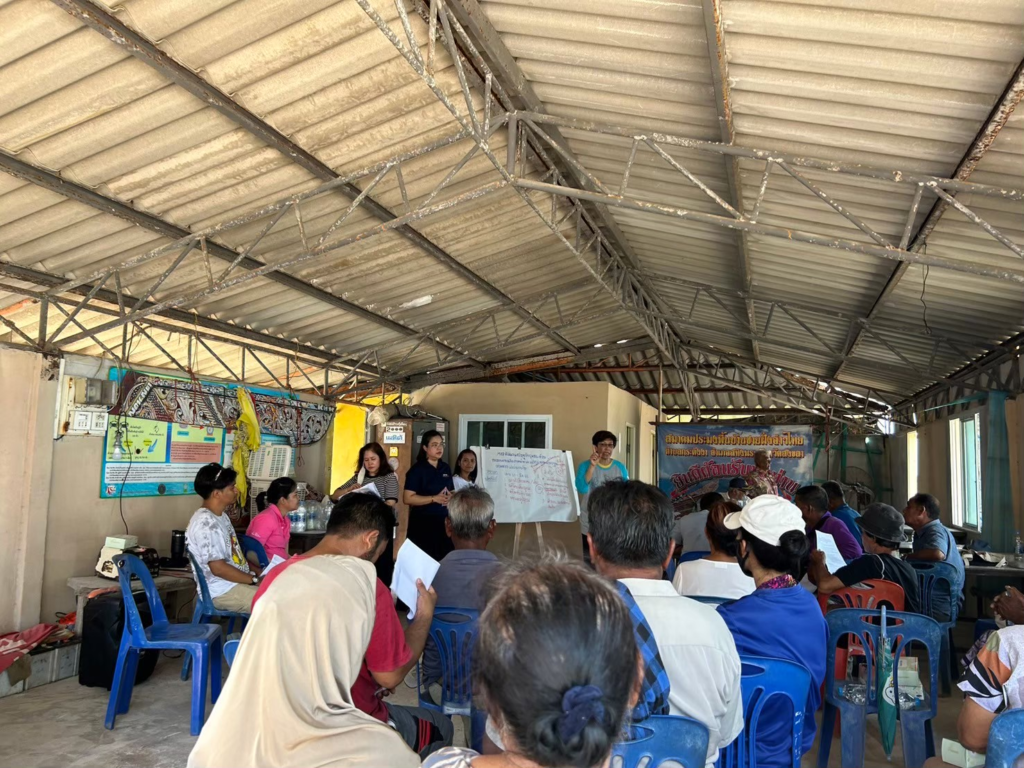
The success of Ban Phang Sai shows how combining active learning, a strong system with active community participation can create real change. Clear financial management, ongoing data collection, and collaboration with key partners helped the community to transform its waste management systems, providing a model that other coastal communities could follow.


